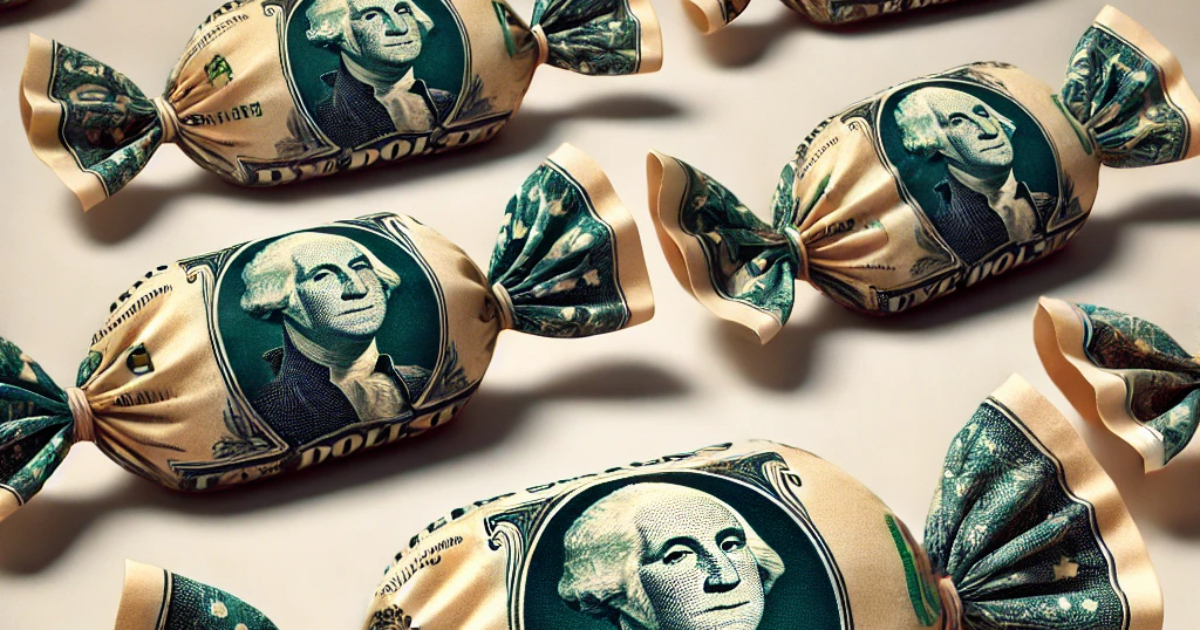
Related videos:
In a surreal twist that could only happen in Cuba, candy has emerged as an alternative for small change in the new dollar supermarkets.
The viral story of a user who visited the newly opened supermarket at 3rd and 70 in Havana sparked a wave of sarcastic comments and humorous reflections on social media regarding the "partial dollarization" of the Cuban economy.
Stunned by this new slap in the face from the ruling class in Cuba and by the explanations from Prime Minister Manuel Marrero Cruz regarding the need to "partially dollarize the economy to progress in the de-dollarization", Cubans are living a genuine nightmare, but they do not give up "choteo" as a way to oppose any order, hierarchy, authority, or power.
"Yesterday I went to the new market at 3rd and 70 and bought several items and paid in cash, but the change was little and they gave it to me in candies", began the "report" by the internet user.
The text continued with questions that combined humor and criticism:
- If I want to pay with candies at the market, will it be possible?
- If I give some candies to one of the girls working at the civil registry or any other place, is that considered a bribe or corruption?
- If someone only likes "foreign" candies, is that ideological diversion or are they confused revolutionaries?
- Will El Toque provide information on the price of candy in relation to the dollar in the informal market?
- Will there be a reference rate depending on the country of origin of the candy?
- If they catch me selling candies on the street, is that money trafficking?
- If I want to start a little business to make candies, will that be possible, or will it be included in the list of activities prohibited for private enterprise?
- When they inaugurate the K hotel, can I book a room paying in candies? How many wheelbarrows will that be?
- If they send me candies "from abroad," is that considered remittances or a donation?
- At the airport, will I need to declare the candies at customs or do they have commercial value?
- Those who import candies, how do they declare it, as food products, or as a transfer of funds?
- If I have more than 20 candies, does that count as hoarding?
- If the Mipyme wants to give me change in candies, do they have to be of national production?
- Will Sandrito have a lot of candies at his house?
- ... because of doubts like this, I cannot rest.
Candies in the Context of an Economic Crisis
The episode of getting change in candies is an example of the everyday absurdities generated by the Cuban economic crisis, exacerbated by the partial dollarization of the system.
The supermarket at 3rd and 70, which recently opened, has faced numerous criticisms for its high prices and its disconnection from the reality of most Cubans.
For example, a rum was found on their shelves for 779 dollars, which sparked an avalanche of outrage on social media. Meanwhile, other products, like meat or detergent, are sold at prices that only a privileged minority can afford.
These supermarkets, created to attract foreign currency, have intensified social polarization, leaving the majority of the population excluded from the dollar consumption system.
The dollar, the candy, and the reality of the Cuban wallet
The dollarization in Cuba has driven up the price of foreign currencies in the informal market, with the dollar reaching 330 pesos this Tuesday, January 7. In this context, using candies as change is a "creative" solution, but it also reflects the precariousness of the financial system and the regime's insatiable desire to hoard foreign currencies.
The story of the candy sharply contrasts with the images of the lavish openings in these supermarkets, where the shelves are full, but only for those who can afford it. For most, the candy not only sweetens the coffee but also a financial reality that seems increasingly bitter.
A "sweet solution" that sours the lives of Cubans
The candy as change in a luxury supermarket encapsulates the contrasts of the Cuban economy.
In a country where the surreal is everyday life, this incident adds to a long list of examples of how popular ingenuity and humor transform adversities and suffering into unforgettable stories.
However, beneath the irony, the episode highlights deeper problems. Dollarization, far from being an inclusive solution, is widening the gap between those who have access to foreign currency and those who barely survive with Cuban pesos.
Filed under: